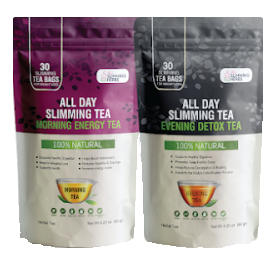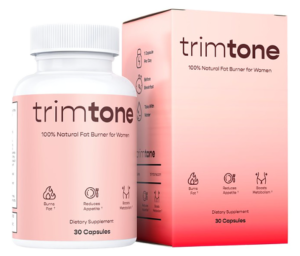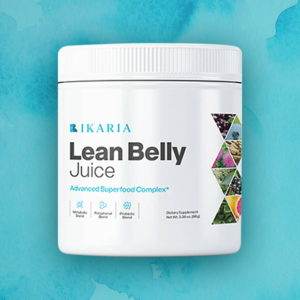Empowering Women: A Comprehensive Guide to Exercise and Weight Loss
Empowering Women – Introduction
A. Overview of the importance of exercise and weight loss for women
Exercise and weight loss are important for overall health and well-being, and women, in particular, can benefit from regular physical activity and a healthy diet. Regular exercise can help prevent chronic diseases such as heart disease, diabetes, and certain types of cancer, and also help improve mental health and well-being. In addition, maintaining a healthy weight can also help reduce the risk of these conditions, as well as improve self-confidence and body image.
B. Common misconceptions and challenges faced by women when it comes to exercise and weight loss
Common misconceptions and challenges faced by women when it comes to exercise and weight loss There are many misconceptions and challenges that can make it difficult for women to make exercise and weight loss a priority in their lives. Some of these include:
- The idea is that weight loss should be the main goal of the exercise, rather than overall health and well-being.
- The belief is that women should avoid strength training for fear of becoming “bulky.”
- The pressure to conform to a certain body shape or size.
- A lack of time, resources, or support.
- The fear of being judged or uncomfortable in a gym setting.
It’s important for women to understand that exercise and weight loss are about feeling good and taking care of oneself, and not just about looking a certain way. It’s also important to focus on overall health and well-being, rather than just weight loss as a goal. And it’s important to find a form of exercise that one enjoys, has access to, and that fits one’s lifestyle.
II. The benefits of exercise for women
A. Physical benefits (e.g. improved cardiovascular health, stronger bones)
Regular physical activity can have a range of physical benefits for women, including:
- Improved cardiovascular health: Exercise can help strengthen the heart and blood vessels, reduce the risk of heart disease and stroke, and lower blood pressure.
- Stronger bones: Weight-bearing exercise can help increase bone density and reduce the risk of osteoporosis.
- Increased muscle mass and strength: Exercise, particularly strength training, can help increase muscle mass and strength, which can improve overall fitness and function.
- Improved flexibility and balance: Regular exercise can help improve flexibility, balance, and coordination, which can reduce the risk of falls and injuries.
B. Mental benefits (e.g. reduced stress and anxiety, improved mood)
Exercise can also have a positive impact on mental health, including:
- Reduced stress and anxiety: Exercise has been shown to reduce levels of the stress hormone cortisol and decrease symptoms of anxiety and depression.
- Improved mood: Regular exercise can help boost self-esteem and improve overall mood.
- Better sleep: Exercise can help regulate sleep patterns and improve sleep quality.
C. How exercise can aid in weight loss
Exercise can aid in weight loss by increasing energy expenditure and burning calories. It can also help increase muscle mass, which in turn can help boost metabolism. Additionally, regular exercise can help improve appetite regulation and reduce cravings for unhealthy foods. However, it’s important to note that weight loss is not the only goal or the most important goal of the exercise, and it’s important to focus on overall health and well-being.
It’s also worth mentioning that exercise should be combined with a healthy diet for weight loss. A healthy diet that is nutrient-dense and calorie-controlled can help provide the body with the energy it needs, while also promoting weight loss.
III. Weight loss and nutrition for women
A. Understanding energy balance and the role of calorie intake and expenditure in weight loss
Weight loss occurs when there is a calorie deficit, which means that the number of calories expended is greater than the number of calories consumed. In order to lose weight, it is important to understand energy balance and how calorie intake and expenditure are related. A calorie deficit can be achieved through a combination of reducing calorie intake and increasing calorie expenditure through exercise.
B. The importance of nutrient-dense foods in a weight loss diet
The importance of nutrient-dense foods in a weight loss diet It’s important to remember that weight loss is not just about reducing calorie intake, but also about providing the body with the nutrients it needs. Eating a diet that is rich in nutrient-dense foods, such as fruits, vegetables, lean proteins, and whole grains, can help ensure that the body is getting the nutrients it needs, while also promoting weight loss.
C. The role of protein, carbohydrates, and fats in a weight loss diet
Each macronutrient, protein, carbohydrate, and fat, plays a different role in the body and should be included in a weight loss diet in the right proportion.
- Protein: Protein can help preserve muscle mass and keep you feeling full, which can be helpful for weight loss.
- Carbohydrates: Carbohydrates are an important source of energy, and they should be included in a weight loss diet, but in the right proportion.
- Fats: Fats are an important source of energy and can also aid in weight loss. It’s important to choose healthy fats such as olive oil, avocado, and nuts.
D. The importance of hydration and the role of water in weight loss
Proper hydration is essential for overall health and well-being, and it can also play a role in weight loss. Drinking enough water can help to curb hunger and reduce calorie intake, as sometimes thirst can be mistaken for hunger. Adequate hydration can also help boost metabolism, which can aid in weight loss. Additionally, water can also help to flush out toxins and waste products, which can help improve digestion and overall health.
It’s recommended to aim for at least 8 glasses (64 ounces) of water per day, but the exact amount of water needed may vary depending on factors such as activity level, climate, and overall health. Additionally, other fluids such as herbal teas, and non-caloric beverages can also contribute to hydration.
It’s also important to note that sugary drinks, such as soda, fruit juice, and sweetened coffees, can add a lot of calories to one’s diet, and it’s recommended to avoid or limit them as much as possible.
It’s also important to remember that weight loss is a gradual process and crash diets or extremely restrictive diets are not sustainable in the long term. It’s always recommended to consult with a healthcare professional or a registered dietitian before starting any new diet.
IV. Exercise options for women
A. Aerobic exercise (e.g. walking, running, cycling)
Aerobic exercise, also known as cardio, can help improve cardiovascular health, burn calories, and aid in weight loss. Examples of aerobic exercise include:
- Walking: A simple, low-impact exercise that can be done anywhere, at any time.
- Running: A more intense form of cardio that can burn a significant amount of calories.
- Cycling: Can be done indoors or outdoors, and can be a low-impact option for those with joint pain.
B. Strength training (e.g. weightlifting, bodyweight exercises)
- Strength training, also known as resistance training, can help increase muscle mass, improve bone density, and boost metabolism. Examples of strength training include:
- Weightlifting: Using weights, such as dumbbells or barbells, to increase muscle mass and strength.
- Bodyweight exercises: Using one’s own body weight, such as push-ups, pull-ups, and squats, to increase muscle mass and strength.
C. Flexibility and balance exercises (e.g. yoga, Pilates)
Flexibility and balance exercises, such as yoga and Pilates, can help improve flexibility, balance, and coordination, which can reduce the risk of falls and injuries. These exercises can also have a positive impact on mental health and well-being.
D. The importance of finding an exercise routine that is enjoyable and sustainable
It’s important to find an exercise routine that is enjoyable and sustainable, as this can make it more likely for someone to stick with it in the long term. This could mean trying out different types of exercise, such as a combination of cardio, strength training, and flexibility exercises, or finding a form of exercise that is social, such as joining a sports team or taking a dance class. The key is to find something that one enjoys and that can be incorporated into one’s lifestyle.
V. Supplements For Women
A. Supplements for an Active Lifestyle
Certain commercial supplements can be great additions to an active lifestyle. Here are a few examples of popular supplements that can aid in weight loss and overall wellness:
- Smoothie Diets: These supplements provide a convenient and nutritious way to get in a variety of fruits and vegetables, which can aid in weight loss and boost overall health.
- Weight Loss Teas: These teas can help with weight loss by increasing metabolism and suppressing appetite.
- Lean Belly Juice: This supplement is designed to aid in weight loss and improve overall health by providing a blend of vitamins and minerals.
- TrimTone: This supplement is designed to aid in weight loss by increasing metabolism and burning fat.
- Lean Belly Juice: This supplement is designed to aid in weight loss and improve overall health by providing a blend of vitamins and minerals.
It’s important to note that these supplements should be used as a complementary addition to a healthy diet and active lifestyle. It’s also important to consult with a healthcare professional before starting any supplement regimen.
B. Natural Supplements for Women
Supplements can play a beneficial role in the health and wellness of women. Here are a few examples of how certain supplements can benefit women:
- Calcium and Vitamin D: These nutrients are essential for maintaining strong bones, and many women may not get enough of them through diet alone. Calcium and Vitamin D supplements can help prevent osteoporosis and other bone-related conditions.
- Iron: Women are at a higher risk of iron deficiency, especially during menstruation and pregnancy. Iron supplements can help prevent anemia and other related health problems.
- Folic acid: Folic acid is important for pregnant women, as it can help prevent birth defects in the baby’s brain and spine.
- Omega-3 fatty acids: Omega-3s are important for heart health and can also help with brain function, mood, and overall wellness.
- Probiotics: Probiotics can help promote a healthy gut and immune system, which can in turn improve overall health and well-being.
V. Conclusion
A. Summary of key points
In this article, we have discussed weight loss for women, the benefits of exercise, both physical and mental, and how it can aid in weight loss. We also discussed the common misconceptions and challenges faced by women when it comes to exercise and weight loss, and the importance of focusing on overall health and well-being rather than just weight loss. Additionally, we covered the role of nutrition in weight loss, including understanding energy balance and the importance of calorie intake and expenditure.
B. Encouragement to make exercise and weight loss a priority in one’s life
Maintaining a healthy weight and being physically active is essential for overall health and well-being. Incorporating supplements into your routine can be a useful tool in achieving these goals, but it’s important to remember that they are not a substitute for regular exercise and a balanced diet. Making exercise and weight loss a priority in your life can lead to a host of benefits, including improved mood, increased energy, and reduced risk of chronic disease.
C. Resources for further information and support
If you’re looking for more information on supplements, weight loss, and exercise, there are many resources available. Websites such as the National Institute of Health (NIH), the Centers for Disease Control and Prevention (CDC), and the American Dietetic Association (ADA) all provide reliable and up-to-date information on these topics. Additionally, there are many support groups and online forums dedicated to weight loss and healthy living that can provide additional motivation and advice. Consulting with a healthcare professional is always recommended.
It’s worth noting that weight loss is not the only goal or the most important goal of exercise, and it’s important to focus on overall health and well-being. Also, the weight loss journey is different for every person, and it’s important to consult with a healthcare professional before starting any new exercise or diet program.







